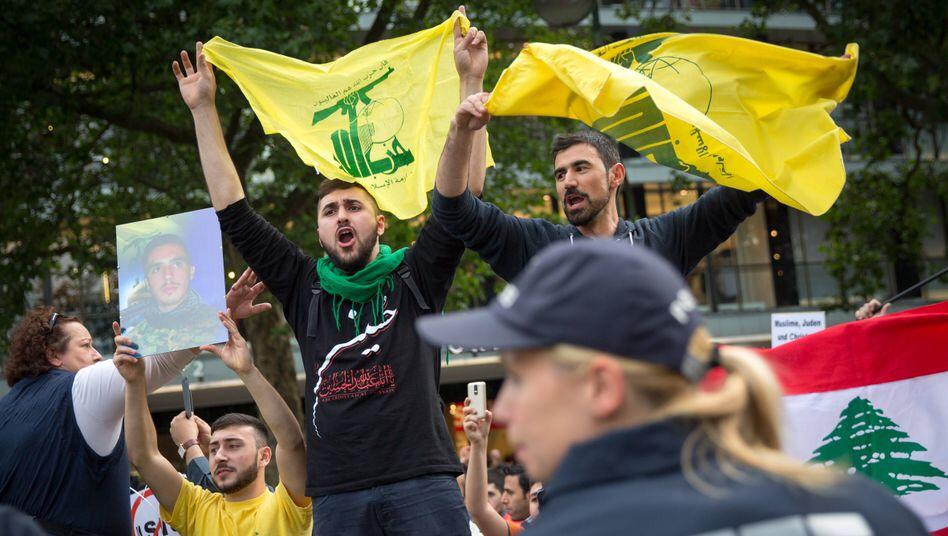The German press has demanded that German citizenship be withdrawn from people who have ties to Hezbollah, according to the amended Nationality Law passed by the Bundestag in late June last year.
German Interior Minister Horst Seehofer on Thursday banned all Hezbollah activities in the country, his ministry spokesman said on Twitter.
He also confirmed that “police measures are underway in several federal states concurrently,” and added that even in times of crisis, the “rule of law is able to act.”
The police raids were focused on four mosque associations in Berlin, Dortmund, Bremen and Münster accused of belonging to Hezbollah.
ermany had previously distinguished between the group’s political and militant arms, but on Thursday the country classified the group in its entirety as a terrorist organization.
“Hezbollah openly calls for the violent elimination of the State of Israel and questions the right of the State of Israel to exist,” the Interior Ministry said in a statement.
“The organization is therefore fundamentally against the concept of international understanding, regardless of whether it presents itself as a political, social or military structure.”
The ban essentially criminalizes public expression of support for Hezbollah within Germany. Followers can no longer display the flag of the Lebanese militia, a green rifle on a yellow background.
Additionally, the total ban has effectively made it easier for authorities to take action against the group, which in turn makes it more difficult for Hezbollah to conduct transnational activities using Germany as a transit point.
Banning Hezbollah could strain relations between Germany and Iran. However, Iran is dependent on good relations with Germany and the European Union, exemplified most recently by the use of Instex, an EU-Iran trading mechanism designed to skirt US-imposed sanctions and export medical supplies to the pandemic-hit country.
The ban also risks impacting Germany’s relationship with Lebanon, as the organization has been represented as part of the Lebanese National Assembly since 1992 and makes up around 10% of all Lebanese parliamentarians. Many German politicians have opposed a total ban, saying allowing Hezbollah’s political arm to exist is essential to maintaining relations with Lebanon.
Kathrin Vogler, a spokesperson on peace policy for the Left Party parliamentary group, told DW last year that banning Hezbollah would not improve the security situation but would make things worse for it in the future, as the move gives the impression that Germany is siding with US demands. “This should be rejected with the necessary clarity,” she said.
However, other German and international politicians and leaders welcomed the German ban.
Omid Nouripour, the foreign policy spokesperson of the Green Party in the German parliament said banning Hezbollah in Germany was “absolutely correct.”
Nouripour told DW that Hezbollah was “trying to find funding in Germany for their work in Lebanon and in Syria, and they are trying to recruit people. This is not something we can accept on our soil.”
The American Jewish Committee (AJC) praised Germany’s move to ban Hezbollah, calling it a “welcome, much-anticipated and significant German decision” in a statement.
“We now hope other European nations will take a close look at Germany’s decision and reach the same conclusion about the true nature of Hezbollah,” wrote AJC CEO David Harris. “Permitting its [Hezbollah’s] ‘political’ wing to operate on European soil allows for active recruitment, fundraising, and the poisonous spread of anti-Semitism,” the statement read.







































admin in: How the Muslim Brotherhood betrayed Saudi Arabia?
Great article with insight ...
https://www.viagrapascherfr.com/achat-sildenafil-pfizer-tarif/ in: Cross-region cooperation between anti-terrorism agencies needed
Hello there, just became aware of your blog through Google, and found ...